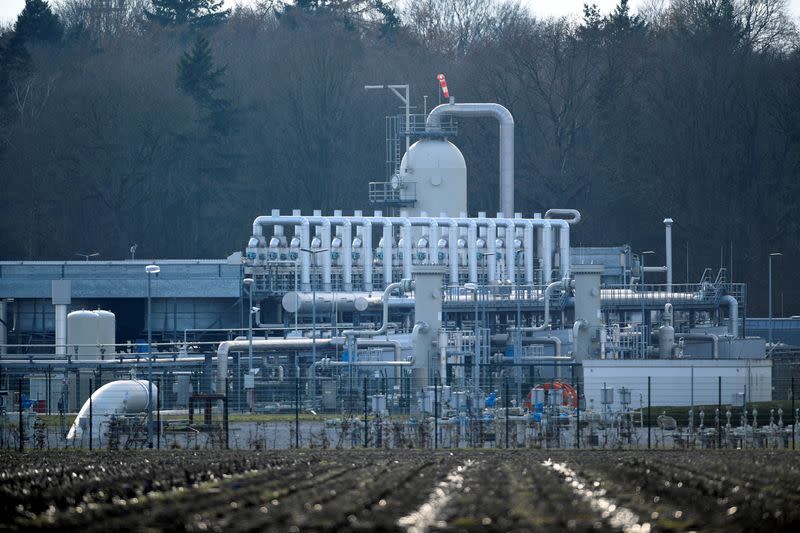German gas storage operators optimistic for current, next winter

By Vera Eckert
FRANKFURT (Reuters) - German gas storage operators group INES on Thursday said there is no chance of a shortage this winter, citing lower demand and sufficient supply after inventories were filled to the brim.
"January did not show cold temperatures and was characterised by ongoing savings in consumption," said managing director Sebastian Bleschke in an online presentation of monthly statistics to reporters. "We'll get through this winter."
Looking ahead, a refilling of stocks ahead of winter 2023/24 would require sea-borne imports of liquefied natural gas (LNG) to continue at high levels, which had come into play after pipeline exports from Russia dried up against the backdrop of the Ukraine crisis, according to INES.
The group, which counts Astora, part of the Sefe group, VNG Gasspeicher, Uniper, and RWE among its members, will detail winter 2023/24 supply in its April report.
January gas usage of 3.3 terawatt-hours (TWh) per day was met by 3.1 TWh of imports plus stocks use and small domestic production, allowing Germany to export 0.8 TWh within Europe, INES data showed.
The only possible gas imports from Russia into the European Union currently remaining are via one border point in Ukraine, one in Lithuania and two in Turkey.
Germany is due to take online six floating storage and regasification units (FSRUs) spread over four sites by the end of 2023, while also importing more gas via Belgium, France and directly from North Sea producers.
A refilling level of 100% could be possible on Oct. 1, exceeding a legal requirement of 85% at that stage, INES said.
Trading Hub Europe (THE), the body tasked by the government with filling a quarter of Germany's gas caverns, has already contracted storage capacity for next winter to help build a supply buffer, it told Reuters recently.
Going forward, INES supports the refinement of state tender models to fill inventories in summer in a cost-efficient way, Bleschke said.
This would complement regular storage market activities by private companies.
(Reporting by Vera Eckert, editing by Friederike Heine)

 Yahoo Finance
Yahoo Finance 